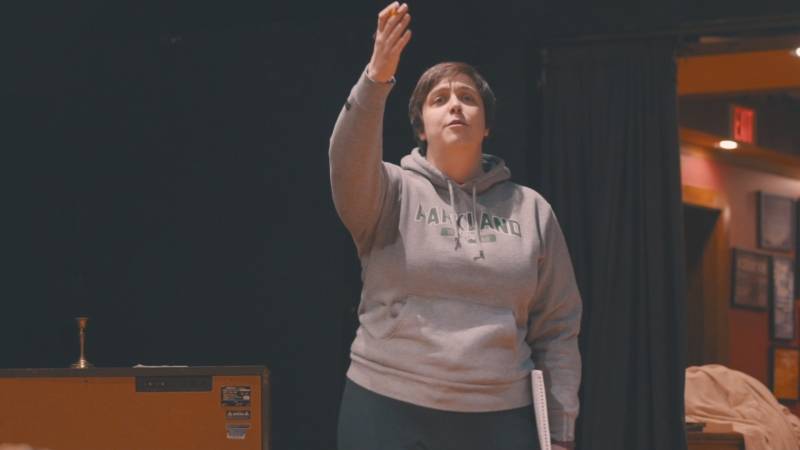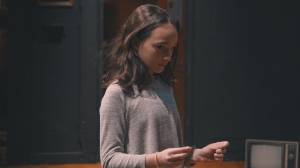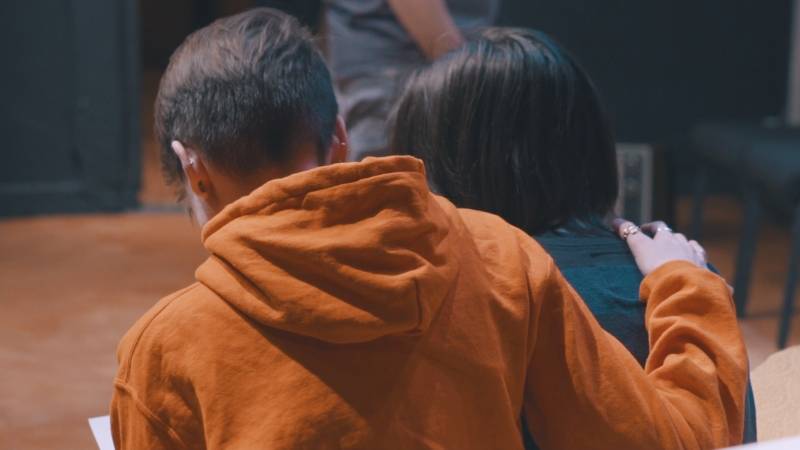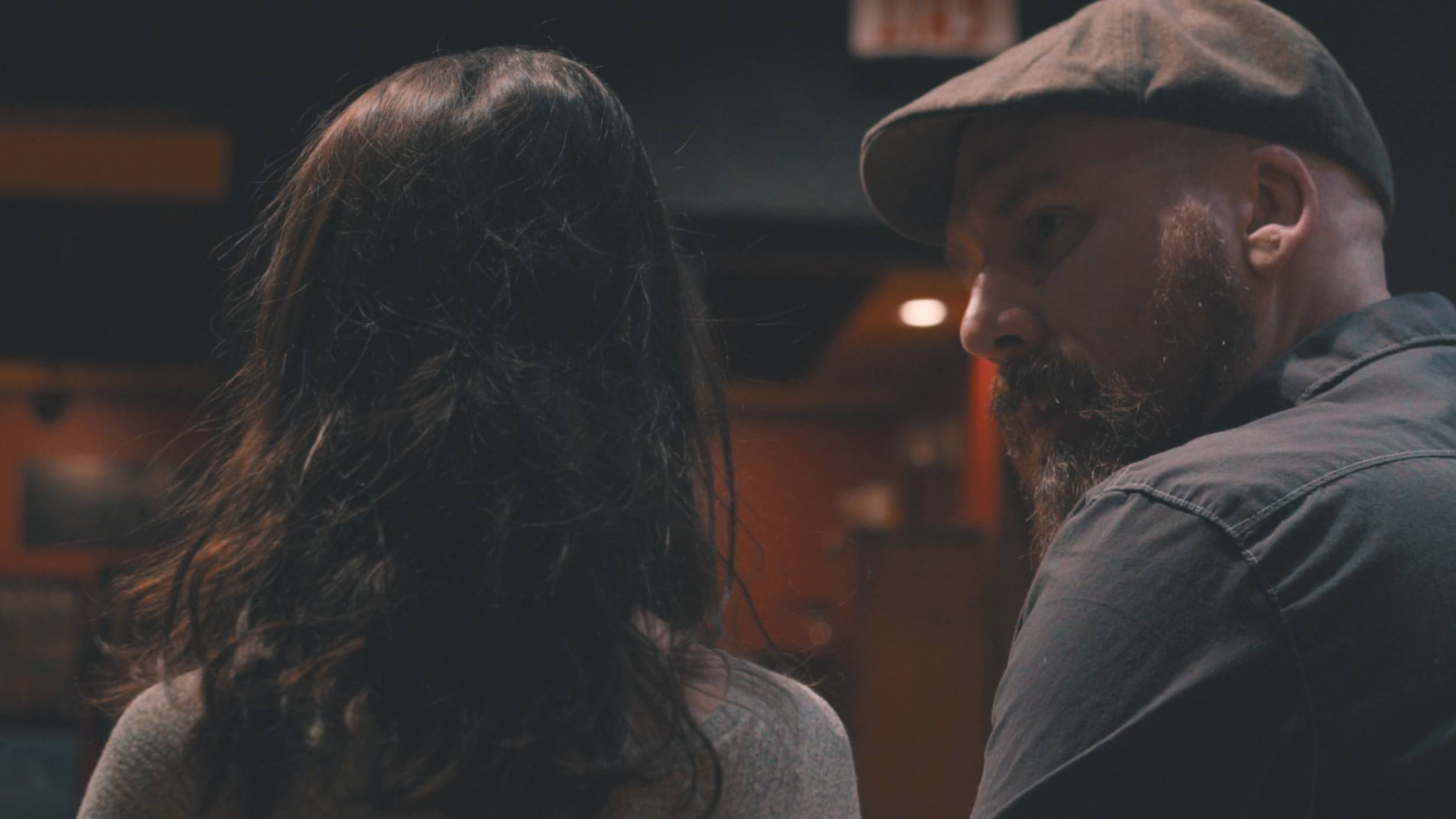I think it goes without saying that the Station Theatre has a penchant for deeply relatable shows. Whether it’s a minister’s own internal wrestling with his theology and faith, a young woman coming to terms with a lost loved one through a session of Dungeons and Dragons, or even a mother’s struggle with mental illness, the stories the Station tells tend to wrestle with the complexity of both the human experience and the myriad of human emotions.
The upcoming production of Fun Home, based on Alison Bechdel’s graphic memoir of the same name and directed by Latrelle Bright, finds itself at home within this tradition. Although centered around graphic novelist Bechdel’s self discovery, Fun Home illuminates the all too common family dynamics of the Bechdel home, and how not everything looks as good once you pull back the perfectly hung curtain. Told through the intertwining memories of Alison’s formative years, it shows how destructive denying one’s true self can be. Or on the other hand, how freeing coming to terms with one’s true self can be. Most of all, the musical is thrust along by the experience of discovering the gulf that exists between who we were and who we’ve become.
Smile Politely sat down recently to discuss this heart-wrenching production with Bright, and cast members Michael Steen (Bruce Bechdel), Jenny Gleason (Large Alison), Jess Schlipf (Medium Alison), and Eve Foley (Small Alison).
Smile Politely: For those not familiar with Fun Home, how would you describe the show?
Latrelle Bright: Well, I think…One of the things I know is happening is people are saying…they’re seeing posters and saying “Oh! Fun Home! That sounds so great. That sounds so light.” And there is a lot of light in the show, but one of the things it does so brilliantly is kind of manifest light and darkness in our lives. So yeah. A show that manifests light and dark, the light and darknesses with it.
Michael Steen: It is a tragic comedy, you know? It’s not specifically funny, but it definitely has some light moments. It’s very dark, but also very beautiful. It’s hard to describe. It’s a really pretty show. I saw it in New York, and thought it was gorgeous.
Jenny Gleason: Well, Fun Home is essentially a story about a woman and her dad. It touches on a lot of other really important things as in memories and family relationships, and definitely being gay and the stigma involved with it. And the importance of living in an accepting culture and family world. But ultimately I think it’s really a story about a girl and her dad.
Jess Schlipf: There’s a lot going on. How I describe it is as a relatable story. And I mean that on all levels. I feel like it is something that can be relatable to anyone who watches it, but really it’s a story about how you see your parents through adult eyes. How you see the world in adult eyes. When people ask me about the show I say it’s about a lesbian cartoonist, Alison Bechdel, in the 1980s. It’s about her relationship with her father and her growing up in a funeral home. And how much different she is from her father, but also how much she is like her father.
Eve Foley: The show is kind of how…I feel like the show is the journey Alison went through in her life. And she never really thought about how odd her life was until college when she meets Joan. It’s then she realizes all these things are odd. She grows up and tries to figure out everything that went on in her life. And she reflects on her life as a child and how oblivious to all the sinister things going on around her.

Smile Politely: Latrelle, what has been the most exciting part of directing this show and the most challenging part?
Latrelle Bright: The most exciting part of directing the show has been, kind of in this Trump era we’re in, to spend some time with a story about people struggling with being who they are, trying to figure out who they are, and making a choice to be who they are–just going ahead and being who they are in the world. I think that is very universal, but also very specific to the strong LGBTQ commmunity in Champaign-Urbana. The most challenging part has been the emotional journey. The last third of the show we’ll all be in tears by the end of the night. So it’s not something we rehearse over and over again. It’s very kind of ready and just below the surface of the skin for all of us. Even though it’s challenging–it’s not challenging in a bad way–it’s just, you know, if we think of theater being kind of this examination of the human condition then this show is kind of the epitome of that.
Smile Politely: How would you describe your character, and the complex emotions and experiences they go through? Can you speak that?
Michael Steen: He is incredibly complex. I feel sorry for Bruce. I know a lot of people feel differently about him. Some people think he’s a bad person. I think he’s tragic. If it had been ten years later [than the setting of the musical] or if he would have grown up during the same time as Small Alison, he would have been a completely different person. He had to have gone a little insane living under suppressive circumstances. Imagine how awful that would have been. I grew up in a small town of 200 people, and was tortured as a child. If I hadn’t escaped that, I probably would have been a pretty emotionally broken person as well. I mean he was either gay or bisexual. He grew up in the 1950s, and in small town Pennsylvania. He had no outlet for any sort of joy or fulfillment, and he found it anyway he could, which I’m sure a lot of people during that time must have done. Once you have created your identity breaking out of that, especially at the cost of losing everyone you love, it must be incredibly hard to deal with. So I just feel like he is such a tragic character because he could have had such a beautiful life. Clearly, he is talented. Clearly, he is passionate. Clearly, he is intensely intelligent. And he expressed those in every way he could. I have a line at one point that goes “I had a life I thought I understood/I took it and I squeezed out every bit of life I could.” It’s a beautiful song, a hard song to perform. I think that encapsulates Bruce.
Jenny Gleason: I feel like Alison is own a personal quest or a personal journey. And she’s trying to learn more about herself through understanding her parents. I feel like especially after the holidays that’s really relevant. We go home and think about who am I and who am I in the context of all of this. So, I guess I admire Alison’s bravery and strength, and the way she looks back and is trying to bring an unbiased view to the way she is looking at people, and her father who has done some pretty terrible things. She’s trying to be realistic about that and still trying to find a balance and find the good in him. I think that’s really noble.
Smile Politely: How do you enjoy engaging your character? What do you get out of it? What is challenging?
Michael Steen: Hmmm. What is challenging? I am a ham. I am a big freaking ham, and so I have to scale it back at times. For a show like this I have to be cautious. So, I find that challenging; containing myself into a smaller space and smaller space. What do I enjoy? I enjoy the make believe. I don’t fully feel like my character until I am in costume. So, I go nuts obsessing over my look for the show. So, yeah, I enjoy the make believe. I enjoy the suspension of disbelief where I’m pretending to be someone else.
Jenny Gleason: I really, like I said before, I admire Alison’s courage and bravery, and sort of facing these things head on. It’s very satisfying to go on the journey with her, and this seeking and then finding. The way she finds closure in this journey is very satisfying. The hard part for me is to not cry the entire time, because I am a crier. And when we were rehearsing, I cried in every scene. Alison is not a crier. She is very matter of fact, so for me it’s been really hard for me sort of metering that out I guess and deciding when she might give over to that emotional side of herself which is very seldom. So, that’s been difficult.
Jess Schlipf: What I enjoy the most is that I usually play characters, in this show I play someone more relaxed, someone more like myself. A little more subtle. I’m a very socially awkward person, and it’s nice playing someone like that one stage. The most difficult I think is also not playing a character because I had to learn how to pull back a little. Playing this is nice, but also challenging. I like the challenge though.
 Eve Foley: So what I think I like the most about being my character is: One, I don’t have to do anything inappropriate. Two, I’m really happy and grateful that I’m Small Alison because I’ve met a lot of great people. And I really enjoy my part because the song “Come to the Fun Home” is a fun song and our choreography is amazing. Basically, Small Alison is a super duper awesome part to play. The hardest part is trying to be like Jess, because you’re supposed to be one person at different ages. I attempt to act like Jess, because I think it’s important to be as realistic as possible. And Jess is doing a really good job being the both of us.
Eve Foley: So what I think I like the most about being my character is: One, I don’t have to do anything inappropriate. Two, I’m really happy and grateful that I’m Small Alison because I’ve met a lot of great people. And I really enjoy my part because the song “Come to the Fun Home” is a fun song and our choreography is amazing. Basically, Small Alison is a super duper awesome part to play. The hardest part is trying to be like Jess, because you’re supposed to be one person at different ages. I attempt to act like Jess, because I think it’s important to be as realistic as possible. And Jess is doing a really good job being the both of us.
Smile Politely: In the show there is a Large Alison, Medium Alison, and Small Alison. Could you please explain that?
Gleason: So the show is essentially Alison looking over the course of her life. So there’s three kind of time points, if you will. There’s the modern time point (which is technically 2003 when she’s writing the book), and there’s a 9-year-old Alison remembering thing from her childhood, and then there’s 19-year-old Alison when she’s in college and comes out and has her first girlfriend, which is the same timeline in which her father killed himself. It’s been really cool to watch the other actresses and sort of work together with them on building a character.
Schlipf: The adult Alison is remembering back to when she was in college and when she was a child. You have Small Alison who is more innocent about the world, but she has a lot of crazy things going on around that she’s not even going to realize until she’s Medium Alison’s age. Then she begins to reevaluate through those eyes. Then as more truth is revealed, we have Large Alison looking through both those eyes. It is a progression through these two important times, and the oldest one.

Smile Politely: Since this seems to be another show in the long line of Station Theatre shows that presents the complexity of the human experience, what about the story do you think will resonate with the audience?
Latrelle Bright: Kind of like what I said earlier, who hasn’t struggled with identity. Even if you’re white, male, straight, heterosexual, Protestant, from money, and educated, there’s some part of something that you’ve struggled with. But what I love about this is that it’s not focused on that kind of central person. It’s focused on the margins, like most of the work that we do here does. I think there’s something in particular about Medium Alison’s journey, it’s really just lovely to see her recognize herself, speak her truth, and deal with the aftermath of that knowing that she’s going to become Alison Bechdel, author, genius award-winning, Fun Home musical, happily living with her partner person. You know the end of her story in spite of the tragedy.
Jenny Gleason: I guess something that sort of is unique about it, I guess, is that it is a character study. It’s also a reminiscence. I think it’s unique insomuch as we’re seeing one character so exclusively throughout the show and that’s different and cool.
Jess Schlipf: Whether you are gay, know someone who has committed suicide or feels like doing so, or had an argument with your parents. It comes down to simple things: your first college away from home experience, your traumatic or good memories with family. It presents a lot of normal human experiences. I feel like it pulls something that we all can relate, not specifically with the events, but we’ve all been through some traumatic things involving our family.
Smile Politely: If you were to try and convince someone to come to this show, what would you say? What can the audience get out of the show?
Latrelle Bright: One, support the arts. Live theatre, live performance has an energy to it that nothing else, no movie, no t.v. show, no commercial can match. Two, support local artists. It’s a lot of work to make yourself vulnerable and open to tell any story, but in particular this one. Three, it’s winter. It’s cold. It’s warm at the Station. We have the heat on. Then we have coffee and cookies. Four, just being able to connect with other human beings. To be able to sit in a room full of strangers and have a common experience is something we just don’t do much all that often anymore. And that’s not really true. We do it in lots of different ways. But I think theater offers something pretty special. I remember in the first show of the season Title and Deed like five minutes into the show he says “We don’t gather anymore.” So this is a way to gather. A way to fellowship. A way to commune. So come out.
Michael Steen: You know, I keep telling my clients that, besides you get to come see me, the show has beautiful music. It’s really incredibly beautiful. Strangely, it is such difficult music, and the story is incredibly touching. I think it will resonate with people depending on who they are. It’s a show and story that really sticks with you. It’s very special.
Jenny Gleason: Anyone who has ever had a challenging relationship with a family member should come see the show, because I think that they will see some element of that reflected in what is happening on stage. I know for me personally I have had some challenging family relationships, and it’s been sort of cathartic to see one person address and resolve those issues.
Jess Schlipf: It is a fun and melancholy show about a great graphic novel. And it has really, really good music. I think people will fully enjoy it, and get a little teary eyed.
Eve Foley: Because… well there are several reasons. Just one? If you want to see a really good play that is really funny and really serious at some times, then you should come see Fun Home.
Fun Home will play at the Station Theatre January 18- February 3rd at 8 p.m., and January 28th at 3 p.m. Tickets and information can be found here.








